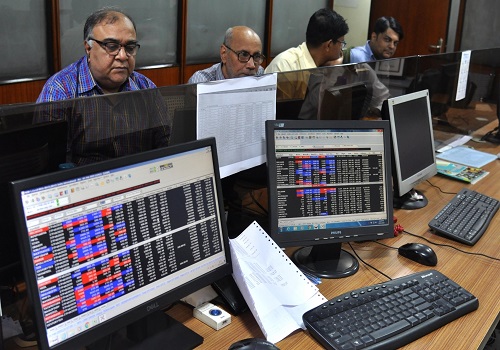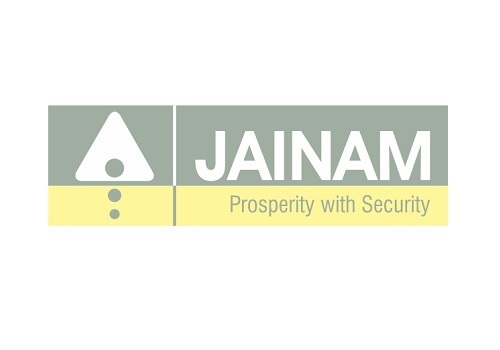Indices end lower for 2nd day
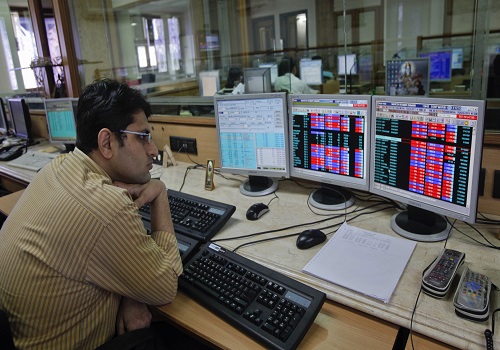
Follow us Now on Telegram ! Get daily 10 - 12 important updates on Business, Finance and Investment. Join our Telegram Channel
Indian equity benchmarks fell for second straight session on Friday on the back of losses in metal, power and telecom stocks amid weak global cues as rising bond yields spooked investors. Markets made negative start and stayed in red for whole day, as India’s tally of coronavirus cases has risen to 11,173,572, with a daily increase of 16,824 in total cases. Death toll has reached 157,584, with 113 fatalities in a day. India's count of active cases has jumped to 177,967. The country continues to be second-most-affected globally, and ranks 13th among worst-hit nations by active cases. Maharashtra, the most affected state overall, has reported 9,000 new cases. The state has added nearly 80,000 cases in the past 10 days. Traders also remain worried as the Economic Survey 2021 tabled in the state Legislature said Maharashtra's economy is expected to see an eight per cent negative growth during 2020-21 with industry and services sectors bearing the maximum brunt of the COVID-19 pandemic and the subsequent lockdown. Traders took note of private report stating that the Centre is likely to first privatise profit-making state-run companies, a shift from the previously announced strategy of focusing on loss-making units. The NITI Aayog, which is identifying public sector units (PSUs) for privatisation, could put out the first list of companies in April.
However, markets managed to trim some losses in late afternoon deals, taking support from the government data showing that foreign direct investment (FDI) in India grew 40 percent to $51.47 billion during April-December 2020-21. India has attracted 22 percent higher FDI inflow (including re-invested earnings) of $67.54 billion during the first nine months of the current fiscal as against $55.14 billion in the same period of 2019-20. However, the markets failed to hold recovery and ended around a percent lower even after Prime Minister Narendra Modi said production linked incentive (PLI) scheme, which is aimed at boosting domestic manufacturing and exports, is expected to increase the country’s production by $520 billion in the next five years. Modi said the government is continuously carrying out reforms to boost domestic manufacturing. Meanwhile, RBI will conduct simultaneous purchase and sale of government securities under Open Market Operations (OMO) on March 10. RBI will purchase four government securities of different maturity dates aggregating to Rs 20,000 crore and sell three securities aggregating to Rs 15,000 using the multiple price auction method.
On the global front, European markets were trading mostly in red, as investors ignored data from Destatis showing that German factory orders grew more than expected in January, driven by foreign demand. Factory orders expanded 1.4 percent month-on-month in January, reversing a revised 2.2 percent fall in the previous month. Orders were forecast to climb 0.7 percent. Asian markets ended mostly lower on Friday, following the negative cues from Wall Street as treasury yields spiked in reaction to the highly anticipated Federal Reserve Chair Jerome Powell's remarks, which failed to calm concerns about higher interest rates and inflation. Surging crude oil prices is also weighing on the markets. Back home, on the sectoral front, stocks related to Agriculture sector were in focus as Agriculture Minister Narendra Singh Tomar hgas said the government is promoting the agriculture sector through reforms in the laws which seeks to bring revolutionary changes. Telecom industry’s stocks too were in limelight as Moody's Investors Service in its latest report stated that spectrum renewals in the recently-held auction will boost telcos' market position. At the same time, it said as some telcos have large cash holdings while others recently raised debt to fund the purchases, there will not be a significant impact on their balance sheets particularly, as pricing competition abates and profitability improves across the sector.
Finally, the BSE Sensex fell 440.76 points or 0.87% to 50,405.32, while the CNX Nifty was down by 142.65 points or 0.95% to 14,938.10.
The BSE Sensex touched high and low of 50,886.19 and 50,160.54, respectively. There were 9 stocks advancing against 21 stocks declining on the index on the index.
The broader indices ended in red; the BSE Mid cap index fell 1.89%, while Small cap index was down by 1.50%.
The top gaining sectoral indices on the BSE were Oil & Gas up by 0.18% and Energy up by 0.07%, while Metal down by 2.16%, Power down by 1.80%, Telecom down by 1.77%, Basic Materials down by 1.66% and Finance down by 1.47% were the top losing indices on BSE.
The top gainers on the Sensex were ONGC up by 1.95%, Maruti Suzuki up by 1.60%, Kotak Mahindra Bank up by 1.24%, Nestle up by 0.59% and Ultratech Cement up by 0.47%. On the flip side, Indusind Bank down by 4.79%, SBI down by 3.03%, Power Grid down by 2.13%, Dr. Reddys Lab down by 1.86% and NTPC down by 1.85% were the top losers.
Meanwhile, the commerce and industry ministry in its latest data has said that Foreign direct investment (FDI) in India grew 40 percent to $51.47 billion during April-December 2020-21 as against $36.77 billion in the same period of 2019-20. Besides, it said the country has attracted 22 percent higher FDI (including re-invested earnings) of $67.54 billion during the first nine months of the current fiscal as against $55.14 billion in the year ago period.
As per to the data, the inflows increased by 37 percent in the third quarter (October-December 2020) of 2020-21 to $26.16 billion. In December, FDI surged 24 percent to USD 9.22 billion. The ministry has stated that the measures taken by the government on the fronts of FDI policy reforms, investment facilitation and ease of doing business have resulted in increased FDI inflows into the country.
It further said the foreign inflows are a major driver of economic growth and an important source of non-debt finance for the economic development of India. It noted that the steps taken in this direction during the last six and a half years have borne fruit, as is evident from the ever-increasing volumes of FDI inflows being received into the country. Continuing on the path of FDI liberalization and simplification, government has carried out FDI reforms across various sectors.
The CNX Nifty traded in a range of 15,092.35 and 14,862.10. There were 12 stocks advancing against 38 stock declining on the index.
The top gainers on Nifty were ONGC up by 2.40%, GAIL India up by 1.77%, Maruti Suzuki up by 1.67%, Kotak Mahindra Bank up by 1.18% and Hero MotoCorp up by 1.17%. On the flip side, Indusind Bank down by 4.48%, Wipro down by 3.83%, Tata Motors down by 3.76%, UPL down by 3.60% and Hindalco down by 2.99% were the top losers.
European markets were trading mostly in red; France’s CAC decreased 33.07 points or 0.57% to 5,797.58 and Germany’s DAX fell 104.21 points or 0.74% to 13,952.13, while UK’s FTSE 100 increased 10.75 points or 0.16% to 6,661.63.
Asian markets ended mostly lower on Friday, tracking weak global markets with anxiety over spiked treasury yields in reaction to the latest comments from US Federal Reserve Chair Jerome Powell that he expects some inflationary pressures in the time ahead. Japanese shares ended lower as the Japan government extended the corona-virus related state of emergency by two weeks for the Tokyo region to prevent a fresh wave of infections. Chinese shares settled marginally lower as the country set a conservative economic growth target of above 6 percent for 2021, well below a widely accepted forecast of over 8 percent for the year.
Views express by all participants are for information & academic purpose only. Kindly read disclaimer before referring below views. Click Here For Disclaimer


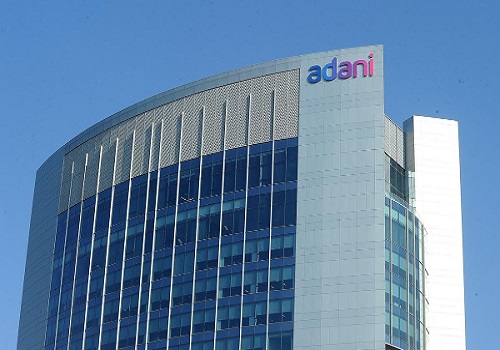

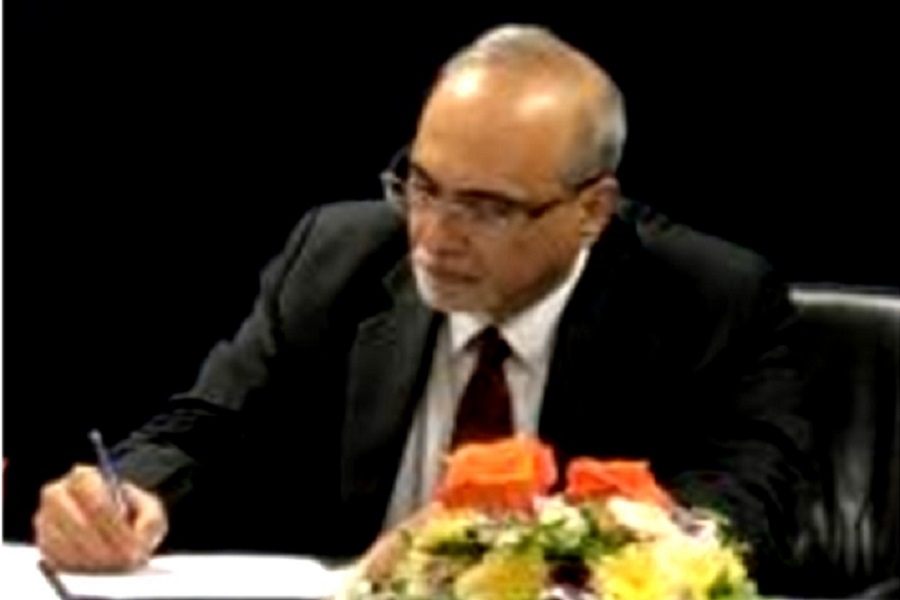
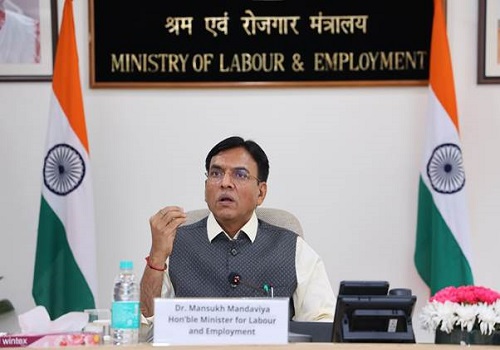

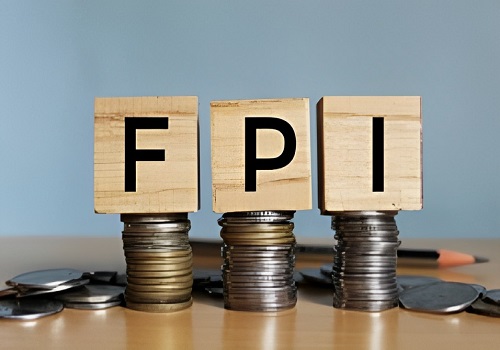
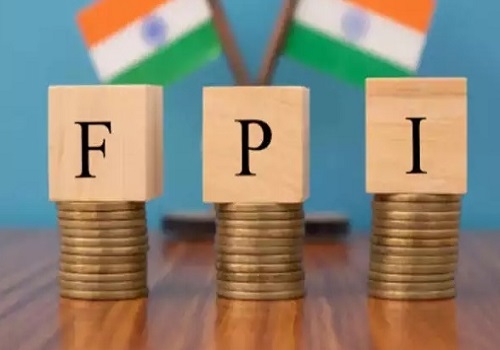

Top News

Myntra hosts Rising Stars D2C Summit to boost India`s beauty brand ecosystem


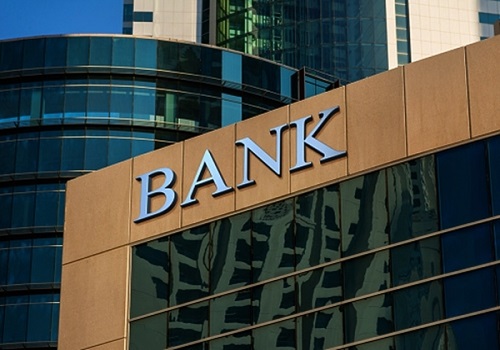
Tag News

Weekly Market Analysis : Markets strengthened recovery and gained nearly 2% in the passing w...






